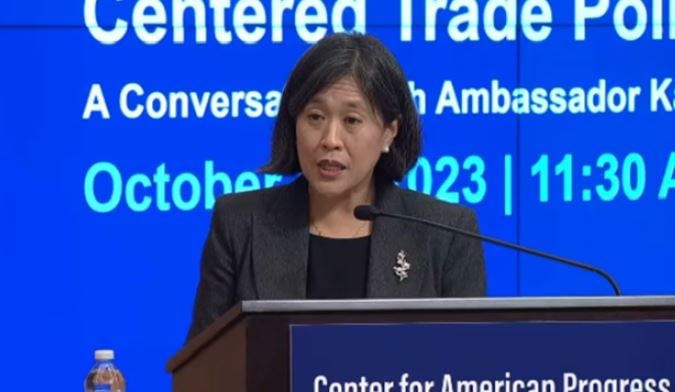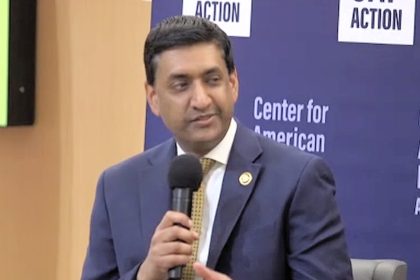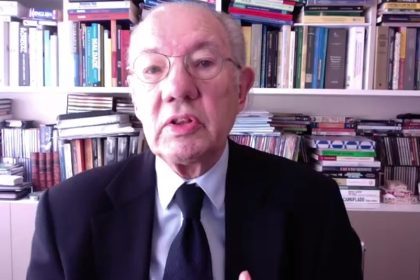Trade Rep. Tai Outlines Biden’s Worker-Centered Trade Policies

WASHINGTON — The United States is at a crossroads in its trade agenda, with pivotal negotiations and policy shifts on the horizon. Two notable initiatives, the Indo-Pacific Economic Framework for Prosperity and the Global Arrangement for Sustainable Steel and Aluminum, are set to redefine how the nation approaches trade in the coming years.
U.S. Trade Representative Ambassador Katherine Tai is a key figure in shaping the United States’ trade policy. She recently addressed these developments and emphasized the importance of a worker-centered approach to trade at the Center for American Progress, a progressive D.C.-based policy research organization.
Her remarks shed light on the direction in which the U.S. is headed, suggesting future trade agreements would look less “traditional” and would prioritize the interests and needs of workers.
“At its core, our worker-centered trade policy is about people,” Tai told the CAP. “The economy is more than numbers. It is people. So our economic policy must work for our people.
“Trade tools are not trophies to be admired on shelves. They are living arrangements between dynamic economies and are meant to be used and put to the test.”
Tai particularly highlighted the success of the United States-Mexico-Canada Agreement, where improvements, such as new collective bargaining agreements, substantial salary increases and safer working conditions have been identified.
“We are seeing real change and success for workers and independent unions in Mexico,” Tai said. “This is having a real impact on working people’s lives, not only in Mexico but also here at home because elevating labor standards in Mexico empowers U.S. workers by reducing unfair incentives to ship jobs overseas.”
In addition to economic security, Tai insisted that environmental sustainability is a key focus of current and future U.S. trade policies.
To that end, the IPEF, which Tai said is “not a traditional trade deal,” features an agenda focused on sustainable agriculture and climate change mitigation. IPEF regulatory changes and transparency, which Tai said will reduce uncertainty and improve adaptability, are also central to efforts to create a more equitable and resilient future and a vision toward collectively addressing global challenges “without harming the middle classes.”
The GASSA, likewise, represents a paradigm shift. It aims to create incentives to address non-market excess capacity in these sectors — steel and aluminum — and tackle the climate crisis. The goal is to incentivize cleaner production and promote a “race to the top” for the planet, a vision that includes adding more like-minded partners and sectors in the future.
Tai acknowledges the Biden administration’s push toward a different approach to trade, “a new trade paradigm … [that] reimagine[s] trade and development as a partnership and a more equitable two-way street.”
This new approach would strive to emphasize the importance of small businesses, address paper-based customs burdens and allow for increased transparency. And it would have workers at its core.
“We need a different approach,” Tai insisted. “Not trickle-down economics in trade form; not maximum tariff liberalization that contributed to the hollowing out of our industrial heartland. One that can lift all boats.”
Tai said the administration is focused on a trade agenda that empowers more workers, and more communities, to thrive in the new global economy, “and that means trading smarter, more strategically, in pursuit of better outcomes and a more inclusive prosperity across our societies.”
“In a nutshell, our goal is to incentivize production and a race to the top for our planet,” Tai said. “It is our vision for how countries can collaborate to deliver real opportunities for our people and collectively respond to the challenges we are facing today without pitting our middle classes against each other.”
But she admitted that it can be hard to understand an effort that is such a departure from the status quo.
“The president believes trade can be a force for good and so do I,” she said. “The decisions that we make today will directly affect the world that future generations will shape and lead. So it is on us, those of us doing this work now, to do trade in a new and better way.”
You can reach us at [email protected] and follow us on Facebook and Twitter
























